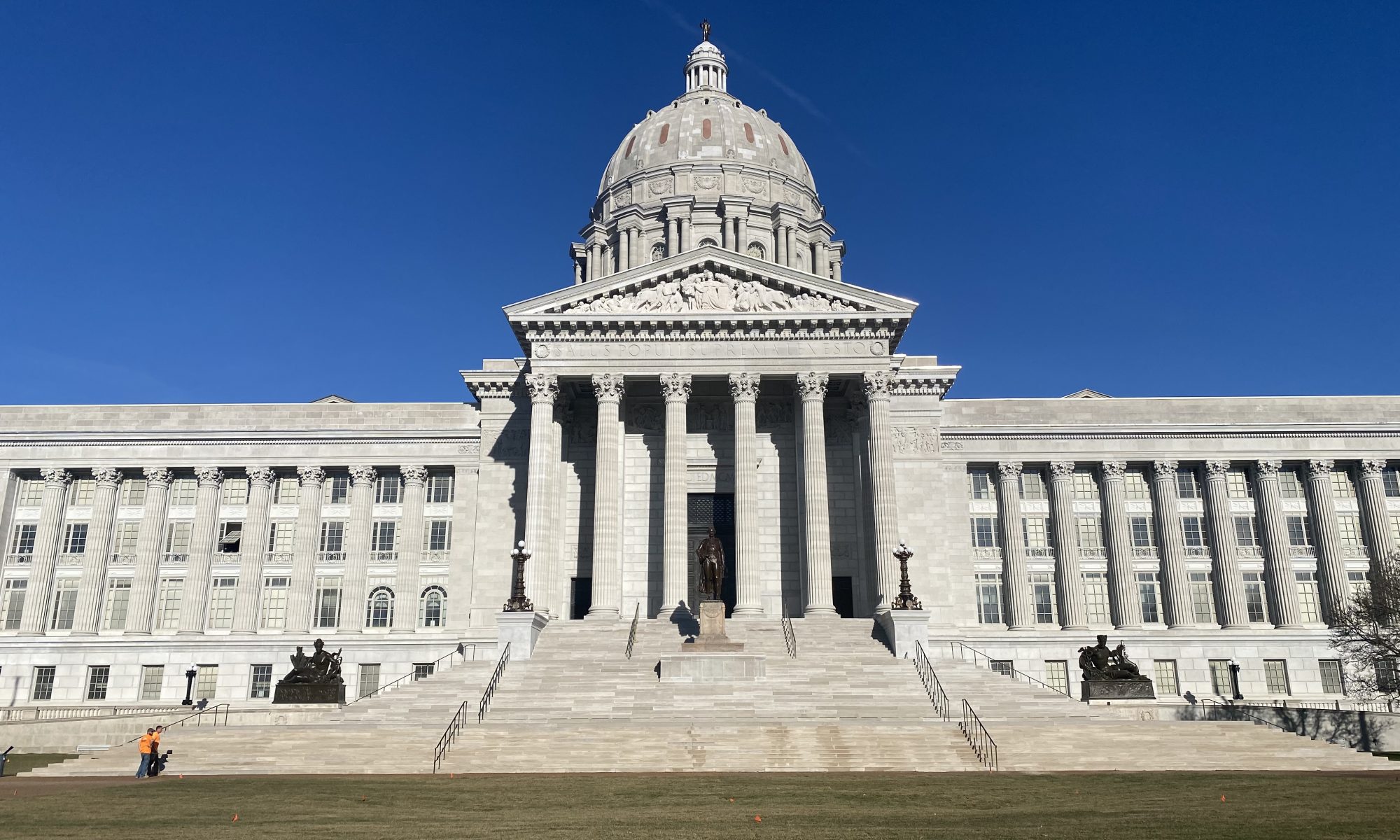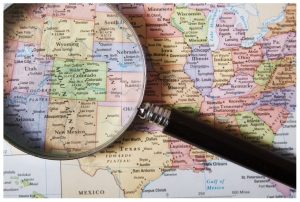 As the COVID-19 crisis continues to play out across the world and people everywhere are looking to make sense of this unique, chaotic situation, many Americans are keeping their eyes glued to the news to stay updated on what the president and Congress are doing to keep us safe. The federal government has recently passed three bills in an effort to keep the Americans safe and blunt economic damage caused by the global pandemic. Most recently, President Trump signed the CARES Act, a bill worth $2 trillion to prevent a large-scale economic fallout.
As the COVID-19 crisis continues to play out across the world and people everywhere are looking to make sense of this unique, chaotic situation, many Americans are keeping their eyes glued to the news to stay updated on what the president and Congress are doing to keep us safe. The federal government has recently passed three bills in an effort to keep the Americans safe and blunt economic damage caused by the global pandemic. Most recently, President Trump signed the CARES Act, a bill worth $2 trillion to prevent a large-scale economic fallout.
While action on a national level is undoubtedly necessary if the government is to provide safety for Americans and their savings, states are also working to make an impact through not only their gubernatorial actions but also the movement of bills through their legislatures. Here are some of the actions being taken across the United States to combat coronavirus. You can learn more about what your state legislature is doing to address the COVID-19 crisis by signing up for free email updates at FastDemocracy.com.
1. Waive K-12 requirements due to COVID-19 closures
Because of the need to avoid large gatherings in the coming months, a number of states have been working to pass bills that will allow schools to conduct classes online, while other states have put a pause on instruction altogether until the coronavirus situation has slowed. In order to take pressure off both instructors and families, some states have brought up legislation that will reduce the mandatory number of hours of instruction that students must receive each week.
2. Mandating insurance companies provide testing without co-pays
Given that the coronavirus has been deemed a national emergency, many states are taking action to make sure health insurance companies cover the cost of coronavirus testing. The driving idea behind this is twofold – first, to ensure that dealing with coronavirus is not cost-prohibitive, and second to stop the virus from spreading further across the larger population.
3. Temporarily change unemployment eligibility requirements
As a result of mandatory quarantines and the inability of many businesses to continue turning a profit when customers are remaining at home, state legislatures across the nation are making it easier for workers who have been laid off to access unemployment benefits. Early access to unemployment benefits would assist impacted workers maintain financial stability.
4. Preventing eviction and foreclosure during COVID-19
Because many Americans are currently finding themselves unable to go to work, concern regarding the payment of rent and utilities is growing. As such, some state legislatures are ensuring that those affected by the economic implications of the virus do not end up without a home. This legislation does not necessarily waive rent, mortgage, or utility payments; it just prevents eviction and foreclosure or the threat of eviction or foreclosure while the COVID-19 crisis is ongoing.
5. Halt debt collection
With unemployment claims rapidly increasing,
so are workers’ concerns about their ability to meet financial obligations. To
further assist workers impacted by the economic slow-down due to coronavirus, some
state legislatures are considering legislation that would pause debt repayments
in order to help Americans avoid bankruptcy.
Throughout the COVID-19 crisis, state and local governments have been on the forefront of proposing policy solutions to help prevent the spread of the virus and assist affected workers and families. Because of the large impact that state legislatures can have in the fight against COVID-19 by passing bills like those listed above, it is now more important than ever that American citizens stay current on what is happening in government at all levels. You can learn more about what the state and federal governments are doing to address the COVID-19 crisis by signing up for free email updates at FastDemocracy.com.


 In an age of information abundance, we have to make choices of where to place our time, attention, and talents. Guided by media framing, our attention is often captivated, even isolated to, national politics instead of our home communities. From November to present day, we’ve been inundated from the top of the ticket – the national elections, the Georgia runoff, a potential government shutdown, imperiled relief efforts, and a raging global pandemic. However, behind all of these stories is the story of a nation of 50 parts.
In an age of information abundance, we have to make choices of where to place our time, attention, and talents. Guided by media framing, our attention is often captivated, even isolated to, national politics instead of our home communities. From November to present day, we’ve been inundated from the top of the ticket – the national elections, the Georgia runoff, a potential government shutdown, imperiled relief efforts, and a raging global pandemic. However, behind all of these stories is the story of a nation of 50 parts. It makes sense that there’s humor lurking behind the desk of government bureaucrats but I recently got a front row seat. Through
It makes sense that there’s humor lurking behind the desk of government bureaucrats but I recently got a front row seat. Through  Every year before the legislative session formally begins, there is a sense of urgency and apprehension. What will be the priorities? How will the parties fracture? Anyone who tells you they know exactly what to expect is absolutely lying.
Every year before the legislative session formally begins, there is a sense of urgency and apprehension. What will be the priorities? How will the parties fracture? Anyone who tells you they know exactly what to expect is absolutely lying.  Despite lawsuits by the Trump administration, it should be abundantly clear that we are in a moment of transition to a new administration. Your vote took work and it mattered. For many, the post election phase feels like a moment to recover. For those that govern, the work has really just begun.
Despite lawsuits by the Trump administration, it should be abundantly clear that we are in a moment of transition to a new administration. Your vote took work and it mattered. For many, the post election phase feels like a moment to recover. For those that govern, the work has really just begun.  The Missouri General Assembly wrapped up its 2020 legislative session on Friday, May 15. FastDemocracy is releasing our first round of legislative analysis focusing on floor votes taken during the legislative session.
The Missouri General Assembly wrapped up its 2020 legislative session on Friday, May 15. FastDemocracy is releasing our first round of legislative analysis focusing on floor votes taken during the legislative session. We get it. These are strange and uncertain times, especially in terms of how you can engage with the government and keep safe. You need a product built on the founding mission that government should be transparent and that technology should put government at your fingertips. With FastDemocracy as your digital partner, you can still be a successful advocate, even from home. Here’s how:
We get it. These are strange and uncertain times, especially in terms of how you can engage with the government and keep safe. You need a product built on the founding mission that government should be transparent and that technology should put government at your fingertips. With FastDemocracy as your digital partner, you can still be a successful advocate, even from home. Here’s how: The actions of governments at a local, state, and federal level are meant to be public. Their votes and voices as they debate issues of vital interest to their constituents are meant to be heard, meant to prompt accountability from voters come the next election. But what happens when the government goes dark?
The actions of governments at a local, state, and federal level are meant to be public. Their votes and voices as they debate issues of vital interest to their constituents are meant to be heard, meant to prompt accountability from voters come the next election. But what happens when the government goes dark?
 As the COVID-19 crisis continues to play out across the world and people everywhere are looking to make sense of this unique, chaotic situation, many Americans are keeping their eyes glued to the news to stay updated on what the president and Congress are doing to keep us safe. The federal government has recently passed three bills in an effort to keep the Americans safe and blunt economic damage caused by the global pandemic. Most recently, President Trump signed
As the COVID-19 crisis continues to play out across the world and people everywhere are looking to make sense of this unique, chaotic situation, many Americans are keeping their eyes glued to the news to stay updated on what the president and Congress are doing to keep us safe. The federal government has recently passed three bills in an effort to keep the Americans safe and blunt economic damage caused by the global pandemic. Most recently, President Trump signed